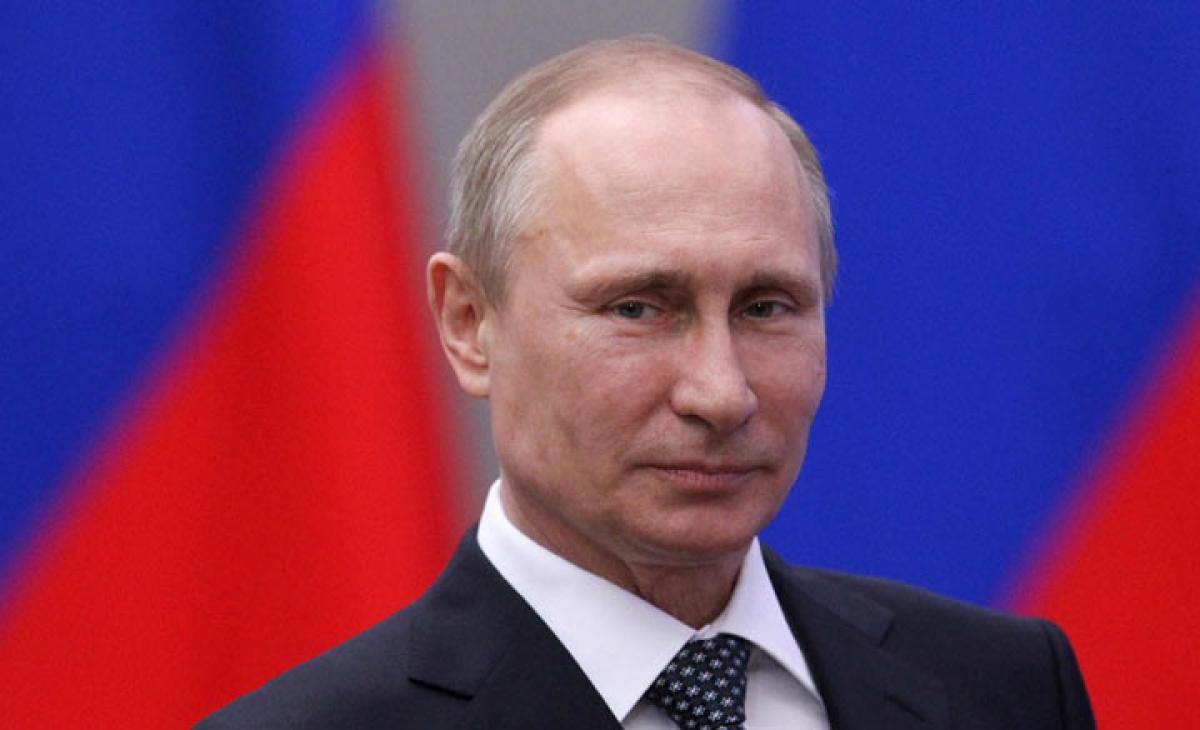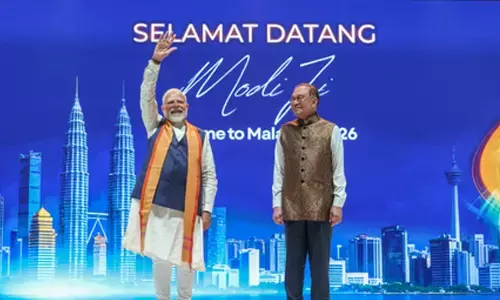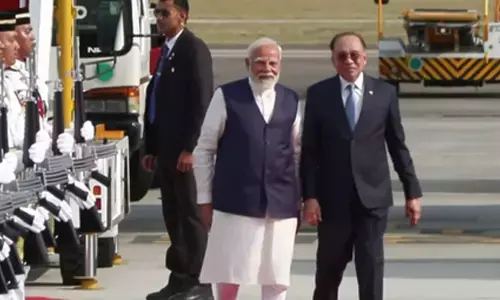Isolation of Russia undesirable

The conflicts in Ukraine and Syria have recently overtaken minds of most policy makers. The first, provoked Europe and the US to distance from Russia but its military intervention in Syria caused hesitations.
 The current “no business as usual” approach should not base only on the reactive containment. The fact is that, in the long run, the lasting isolation of Russia will be difficult to maintain and, more importantly, will be undesirable. The West needs to overcome several obstacles and challenges that have been raised within the EU and between both sides of the Atlantic. It is indispensable in order to reach the goals aiming at providing effective action plan in response to Russia’s activity in recent years. The challenges and conditions that have to be fulfilled for the sake of the successful long-term “no business as usual” policy are: Preservation of unity and solidarity within EU towards Russia
The current “no business as usual” approach should not base only on the reactive containment. The fact is that, in the long run, the lasting isolation of Russia will be difficult to maintain and, more importantly, will be undesirable. The West needs to overcome several obstacles and challenges that have been raised within the EU and between both sides of the Atlantic. It is indispensable in order to reach the goals aiming at providing effective action plan in response to Russia’s activity in recent years. The challenges and conditions that have to be fulfilled for the sake of the successful long-term “no business as usual” policy are: Preservation of unity and solidarity within EU towards Russia
The conflicts in Ukraine and Syria have recently overtaken minds of most policy makers. The first, provoked Europe and the US to distance from Russia but its military intervention in Syria caused hesitations. However, the West shouldn’t come back to “business as usual”. In fact, the genuine transatlantic “no” to such policy towards Russia is the one and only approach that would succeed and achieve the desired result. Nonetheless, the problem lies with the chosen strategy and the measures taken in order to fulfil it. The tricky part is that the transatlantic community doesn’t have one in regard to Russia.
The current “no business as usual” approach should not base only on the reactive containment. The fact is that, in the long run, the lasting isolation of Russia will be difficult to maintain and, more importantly, will be undesirable. The West needs to overcome several obstacles and challenges that have been raised within the EU and between both sides of the Atlantic. It is indispensable in order to reach the goals aiming at providing effective action plan in response to Russia’s activity in recent years.
The challenges and conditions that have to be fulfilled for the sake of the successful long-term “no business as usual” policy are: Preservation of unity and solidarity within EU towards Russia. Saying that the EU’s unity is the condition sine qua non for its operative external policy is one of the most favourite cliché in Europe. One would then say it’s not worth to keep mentioning it. Although, it is. The gravity of the present situation calls for the need of European solidarity. Therefore, the stiff position of all member States towards Russian aggression in Ukraine and the unanimity in terms of the necessity of sanctions has to be appreciated.
Second, there is need for renewal of the transatlantic alliance with regard to growing divergence between allies. The divergence of interests between the partners has become a habit instead of being incidental. It is the weakening the US commitment in European security that is the main source of discords. It does not only relate to American presence in the EU, but to its influence in Wider Europe and MENA region as well.
Hence, the importance of the Transatlantic Trade and Investment Plan is nowadays greater than ever. The successful result of negotiations could be a kick-starter for the renewal of the alliance and a significant message to the rest of the world, proving that the report of the end of Western world was an exaggeration. Third, an effective management of international crises in Syria and Ukraine. These conflicts are currently the most pressing problems for the transatlantic relations with Russia. Moreover, both are inextricably linked.
The fate of Ukraine will affect Syria and vice versa. Most importantly, these are at the same time the biggest challenges for the European unity and durability of the transatlantic alliance. The eastern crisis put to an end the “strategic partnership” with Russia. Despite the fact that Europe succeeded in posing sanctions unanimously against Kremlin, the united front cannot be taken for granted in future.
One of the main threats for the unity is the influx of refugees which is the consequence of the war in Syria and recently the French hunger for revenge after the terrorist attacks in Paris. Lack of the solidarity from some European countries in this matter calls into question the further unity in terms of sanctions. Hence, Europe cannot try to solve these issues separately from each other.
In the meantime, the general attitude of the US towards the crises in Middle East causes serious frictions with their European partners. Washington, being also liable for this chaos is not very keen to burden the generated costs, just to mention modest help regarding the refugee influx.
Unfortunately, the Russian bomber shot down by Turkish fighting falcon makes the whole issue more blurred and complicated. One has to keep in mind it was in fact the NATO that brought down the Russian warfare machine. It questions the Western capabilities to form the much-needed coalition against ISIS. At the same time, Russia will not manage to overcome its international isolation if Turkey will not be involved in the whole process.
What can be done? The implementation of Minsk agreement is unlikely to be finalised. Consequently, the new form of settlement is needed. The Normand format should be replaced e.g. by Geneva’s. The American presence in the negotiations would be an important factor strengthening Ukraine.
The problem is the ensuing presidential elections, so it is unclear if Barack Obama would really like to get involved in resolving Russian-Ukrainian conflict. On the other hand, efforts in order to stabilise the situation for any price before the end of his term of office could bring devastating consequences for Kiev. Thus, real progress is possible after the polls.
The end of the war in Syria should be the greatest priority for all sides even if that would be a means of keeping President Assad in power. However, it would be totally unacceptable for Turkey. Neither the transatlantic community is eager to let it happen, although the West is getting more flexible.
One has to be aware of contradictory interests of particular actors. The West wants to contain ISIS and remove Assad, therefore it supports Syrian opposition, including the Kurds who are very efficient in the fight against ISIS. Russia backs the current regime, fighting the opposition.
Turkey would also like to depose Assad but at the same time it is ambiguous towards ISIS, due to its actions in order to defeat Kurds. Iran’s major interest is to maintain internal stability. Hence it would like to keep Assad in power. Consequently, Saudi Arabia which is always trying to counter the Iranian influence supports the Sunni opposition. In this regard, the Bosnia and Herzegovina scenario should be considered as the best possible option for any positive changes in the country.
In order to reach any consensus, the country will have to be decentralised where three separated regions with Alawites, Sunnis and Kurds will establish a form of confederation. However the Dayton scenario directly to implement in Syria will not be a sustainable solution considering its effects in BiH after 20 years.
For the mid-term perspective the best option could be if these three “cantons” will become de facto some sort of protectorates of Iran and Russia (Alawites), Gulf countries (Sunnis) and the West (Kurds). Despite doubts and limitations, the initial deal has to be treated as a part of transition process, given the fact it is always better to continue it at the table than on the field.
Europeans should press their American ally in order to receive more substantial support in the Middle East crisis. That would be crucial in case of any negotiations with Russia. The presence of the whole EU in solving both conflicts will be desirable.
The current reality requires from the West to seek the mutual accord with Russia where it is necessary, without trading any arrangements for substantial concessions in other important aspects. Therefore, the policy of differentiation and the close transatlantic cooperation with greater European initiative and activity, especially in terms of hard security within NATO, is much needed. (Courtesy, Centre For International Relations, Poland)
By Bartosz Duda















